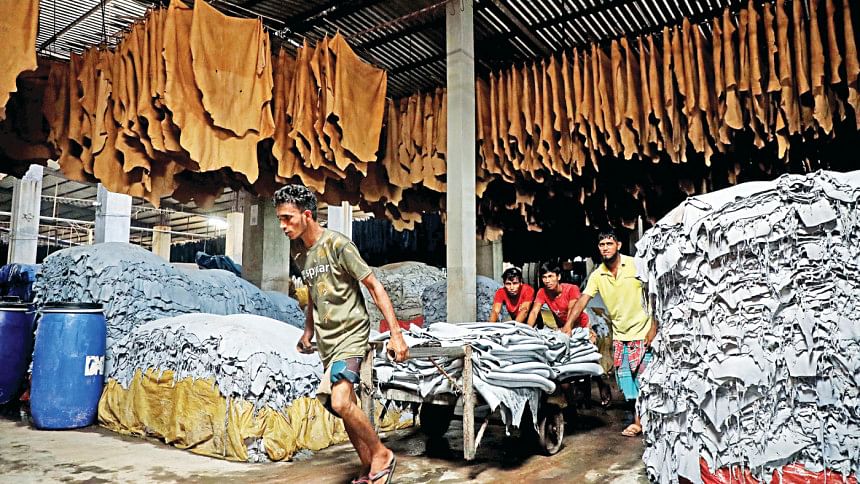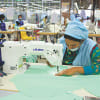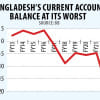Leather and footwear export fall

The exports of leather footwear from Bangladesh declined 4.28 per cent year-on-year in July-May of the ongoing financial year owing to lower orders from Europe, the main market, official figures showed.
Footwear is the largest contributor to the earnings generated by the leather sector in the country.
Bangladesh shipped leather footwear worth $644 million during the 11-month period. It was $756 million in July-May of 2021-22, according to the Export Promotion Bureau (EPB).
Leather exports also declined: it was down 18.11 per cent to $114.59 million.
The shipment of leather products, however, increased 19.43 per cent to $361.47 million. It was $337.62 million during the identical 11-month period of FY22.
Overall exports from leather and leather products, the second biggest export-earning sector after garments, inched up 0.42 per cent to $1.12 billion in July-May of 2023. Receipts stood at $1.11 billion during the same period a year earlier.
Dilip Kajuri, chief financial officer of Apex Footwear Limited, said: "Our business had started to recover from the Covid-19 pandemic. But the war in Ukraine disrupted the rebound."
He said since the European economy has received a huge blow from the global energy crisis stemming from the war, orders continued to decline.
Europe is the biggest market for the leather and footwear sector in Bangladesh.
"Until the economic condition in Europe improves, our exports will not grow," Kajuri said, adding that his company's orders have fallen by 50 per cent.
According to Kajuri, another blow for the manufacturers is coming from the difficulty in opening letters of credit (LCs).
Amid the persisting US dollar crisis, manufacturers are unable to open LCs to import raw materials.
He said banks are delaying processing LCs even if importers give a 100 per cent margin.
"The delay leads to a delay in production, resulting in the drop in local sales that we observed during Eid-ul-Fitr," Kajuri said.
Nasir Khan, chairman and managing director of Jennys Shoes, one of the top exporters of footwear, says the impact of the economic slowdown in Europe has contributed to the reduction in exports not just for Bangladesh but also for its competitors.
Export orders usually remain higher at this time of the year, but the situation is quite the opposite as European buyers are placing fewer orders.
Amid the lingering cost-of-living crisis, Europeans have cut consumption and the current trend in demand is expected to continue until normalcy returns to the economy in the bloc, he said.
"So, our exports might remain dull until the global crisis eases."
The latest blow has come from the power disruption the country is witnessing. The power crunch has turned severe as many power plants are either shut or not operating at capacity.
"Because of the lack of uninterrupted power supply, the production in our factory has declined sharply. As a result, we are not able to deliver export-oriented items on time," Khan said.
He said it is challenging to maintain quality without a reliable power supply. Modern machinery requires a smooth supply of electricity.
The production at Jennys Shoes has declined by at least 30 per cent compared to normal times due to load-shedding, Khan said.
Abul Islam, general manager of SAF Leather, a concern of Akij Group, also blamed the lower orders from European buyers for the dip in exports.
"Owing to the economic slowdown, the export of shoes and leather products from Bangladesh has declined significantly."
He said the leather and footwear sector has fallen into difficulty driven by a rise in the production cost amid a spike in the cost of raw materials and labour whereas the prices of exported items have remained the same.
He said Japan is the second-biggest market for the leather industry. "But Japanese buyers have not raised the prices in the last one decade."
Islam does not see any possibility of exports in the leather sector rising significantly in the immediate future.

 For all latest news, follow The Daily Star's Google News channel.
For all latest news, follow The Daily Star's Google News channel. 








Comments